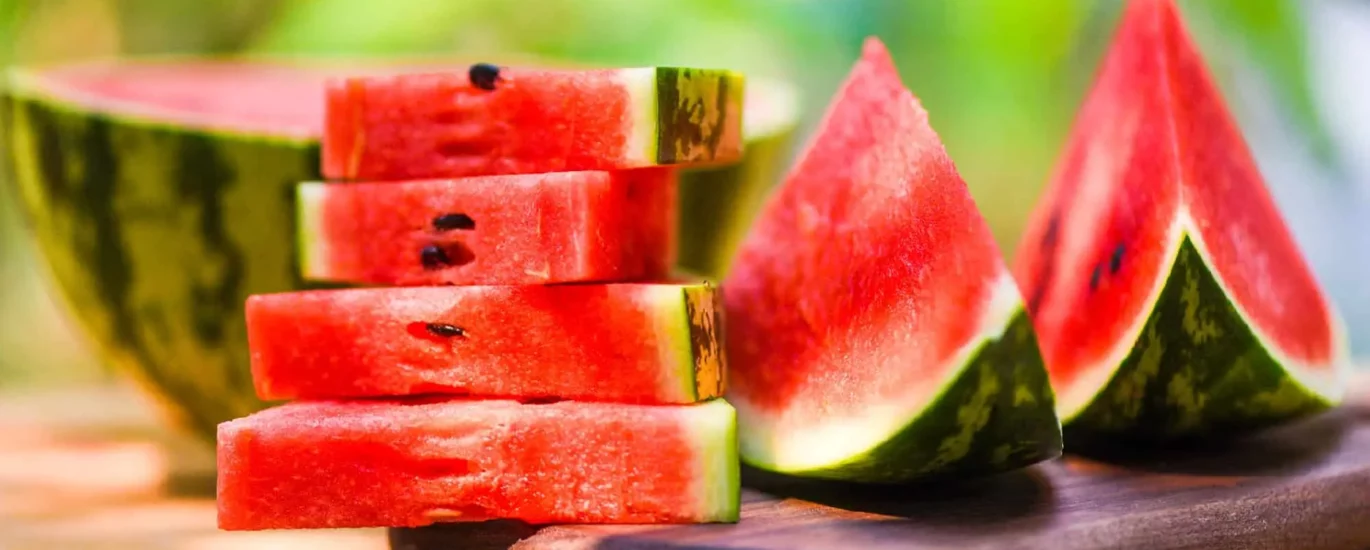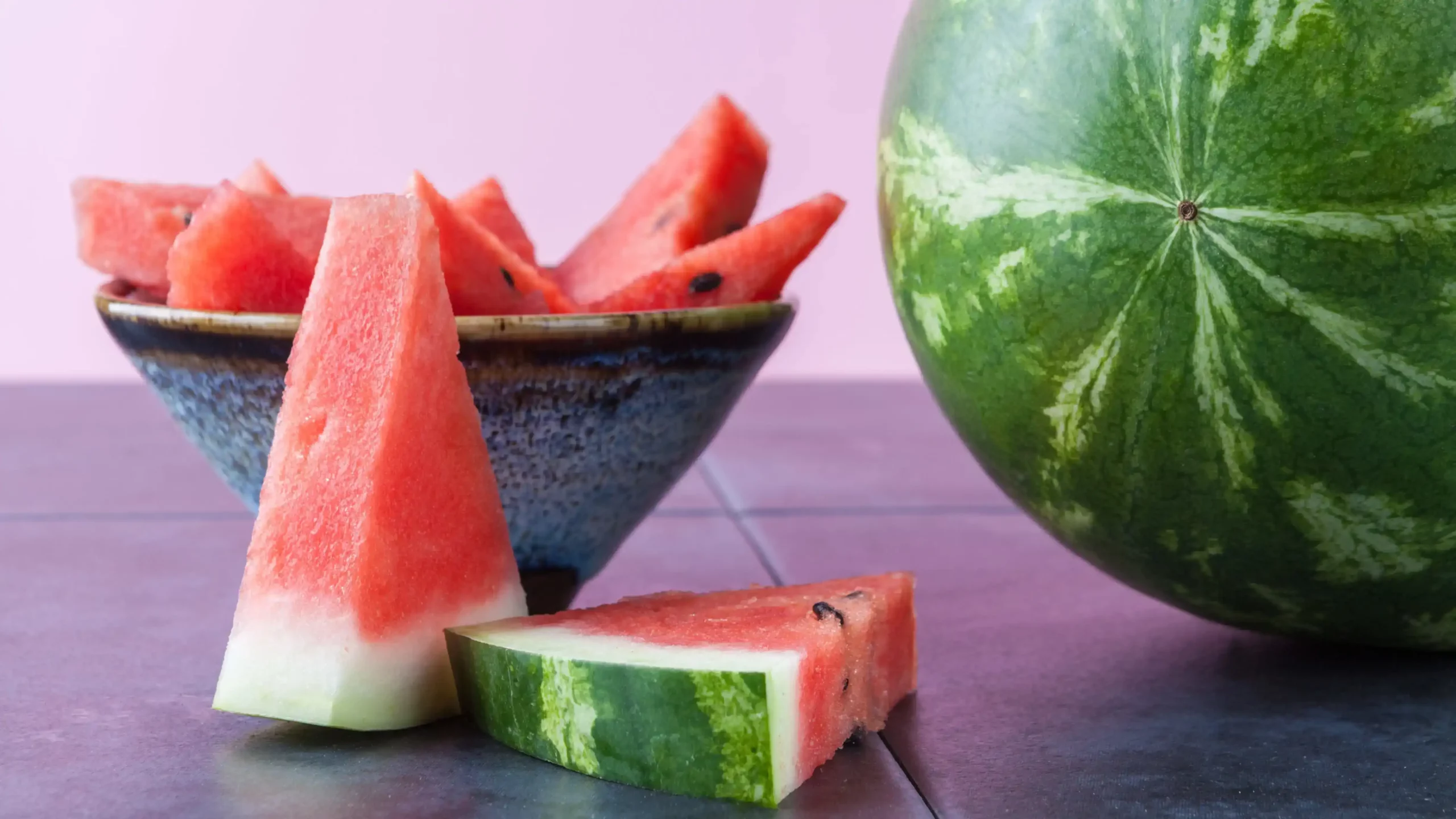


Watermelon, a delicious and hydrating fruit, is synonymous with summer and is often enjoyed as a refreshing treat. Its vibrant color, juicy texture, and high water content make it a favorite among many. However, for individuals with diabetes, there may be concerns about its impact on blood sugar levels. This article aims to delve into the question of whether watermelon is suitable for diabetics. By examining its effect on blood sugar levels and exploring its overall health benefits, we aim to provide a comprehensive analysis of watermelon’s role in a diabetic-friendly diet.
Watermelon, believed to have originated from Africa, is a beloved fruit enjoyed worldwide, especially during the hot summer months. Its high water content, approximately 92%, makes it an excellent choice for hydration, helping to quench thirst and keep the body cool. In addition to its hydrating properties, watermelon packs a variety of essential nutrients. It is rich in vitamins A and C, which play crucial roles in immune function, skin health, and overall well-being. Watermelon also contains potassium, which supports proper heart and muscle function, and citrulline, an amino acid that promotes healthy blood vessels.
Watermelon is also a source of antioxidants, including lycopene, beta-carotene, and vitamin C. Lycopene, in particular, gives watermelon its vibrant red color and has been associated with potential health benefits such as reduced inflammation and protection against certain types of cancer. For individuals with diabetes, watermelon offers a favorable nutritional profile. It is low in calories, with approximately 30 calories per 100 grams, making it a suitable choice for those aiming to manage their weight or reduce calorie intake. Furthermore, watermelon is naturally low in fat, making it a healthier alternative to many high-fat snacks.
The combination of watermelon’s high water content, essential vitamins and minerals, and low-calorie, low-fat nature makes it an attractive fruit option for people with diabetes. However, it is important to consider its impact on blood sugar levels, which we will explore in the subsequent sections.
Diabetics is a condition characterized by elevated blood sugar levels. As we already know, one of the major causes of diabetes is the hampered insulin release by the beta cells in the pancreas. These cells are in charge of secreting the hormone insulin, which helps regulate blood glucose levels. Many severe complications, such as eye damage, cardiac issues, nephropathy and neuropathy etc, can develop in the long run if you do not manage your blood sugar levels.
Watermelons have a marvelous nutrient profile, containing high moisture content and potent health-promoting chemicals. However, watermelon’s glycemic index (GI) is 80, and thus portion control is a prerequisite for diabetics when consuming it. Furthermore, even though watermelon has a relatively low carbohydrate content we cannot rule out the fact that it too can cause blood sugar levels to increase.
Carbohydrate transforms into blood glucose or blood sugar after being digested. Therefore, the amount of carbohydrates you consume is proportional to the amount of glucose/ sugar entering the blood.
However, watermelon’s high fibre content balances out the carbohydrate effect to some extent and does not let it significantly raise blood glucose levels if consumed in moderation.

While more research is needed in this field, research findings on watermelon and diabetes show that if consumed in appropriate amounts, watermelon could lessen diabetes complications.
Regulating the quantity of consumption can prevent watermelon from negatively affecting your blood sugar levels. Having said that, it should always be kept in mind that excess and frequent consumption of watermelon may lead to blood glucose spikes and nullify its positive effects.
According to investigations, hyperglycemia patients are more likely to experience cardiac problems. Elevated oxidative stress and LDL oxidation are the main contributing factors to this condition.
High glycemic foods significantly increase glucose, and their auto-oxidation produces free radicals and cell damage. However, lycopene, an antioxidant, occurs naturally in watermelon and has hypoglycemic action.
Lycopene aids in the battle against free radicals and lowers the risk of diabetes, heart disease, and other conditions. It is relevant because cardiovascular diseases account for 68% of deaths in adults with diabetes over the age of 65. Studies also show that lycopene extract greatly enhances lipid and glucose metabolism.
Watermelon offers several potential health benefits for individuals with diabetes, making it a fruit worth considering in their diet:
It’s worth noting that while watermelon offers potential health benefits, it should be consumed in moderation as part of a balanced diet. Portion control is key due to its natural sugar content, which can impact blood sugar levels.
When it comes to consuming watermelon, portion control is crucial for individuals with diabetics to maintain stable blood sugar levels. Here are some tips to help incorporate watermelon into a diabetic-friendly meal plan:
Overconsumption of watermelon can lead to higher blood sugar levels and potentially disrupt diabetics management. While watermelon is a healthy fruit choice, it is essential to consider its sugar content and incorporate it mindfully into your overall meal plan.
Watermelon can be a refreshing and nutritious addition to a diabetic-friendly diet. Its high water content, essential vitamins, minerals, and antioxidants offer potential health benefits for individuals with diabetes. However, moderation and portion control are key due to its natural sugar content. Incorporating watermelon alongside protein or healthy fats can help manage blood sugar levels. Remember to consult with doctors for personalized advice on incorporating watermelon into your diabetes management plan. By making informed choices and practicing portion control, individuals with diabetes can enjoy the taste and benefits of watermelon while maintaining optimal blood sugar control.
A. Lychees have high sugar content. In many desserts, it also is used as a sweetener. Bananas and mangoes are also rich in sugar content. Compared to fresh fruits, dried fruits have high quantities of sugar.
A. Watermelon, a sweet summertime delicacy, is 92 per cent water and has the lowest carb content of any fruit, with only 7.5 g of carbohydrates per 100 g, according to the USDA.
A. Eating dried fruits in moderation will not raise your blood sugar. Dried fruits having a low or moderate GI is best if you are concerned about the impact on blood sugar levels. However, dried fruits with high GI scores will significantly affect blood sugar more than low and moderate GI ones. Therefore, it all depends on the type and amount of dried fruits you consume.
A. Any fruit with a low glycaemic index is deemed proper for consumption by diabetic patients. Such fruits include apples, oranges, berries, guava, kiwi, dragon fruit, peaches, pomegranate and avocados.
A. Apples are arguably the healthiest fruit. These sweet juicy treats are the ideal weight loss fruits thanks to their high-fibre, low-calorie values. Eating apples during breakfast or lunch will keep you feeling active throughout the day. These fruits are a great non-caffeinated way to stay awake. When eaten whole, apples can help control your appetite and reduce hunger.
A. Figs are high-fibre fruits. They have approximately 2.9 grams of fibre per 100 grams. Other fibre-rich fruits include apples, oranges, apricots, blackberries and blueberries. You can also sprinkle pomegranate seeds to boost the fibre of any salad.